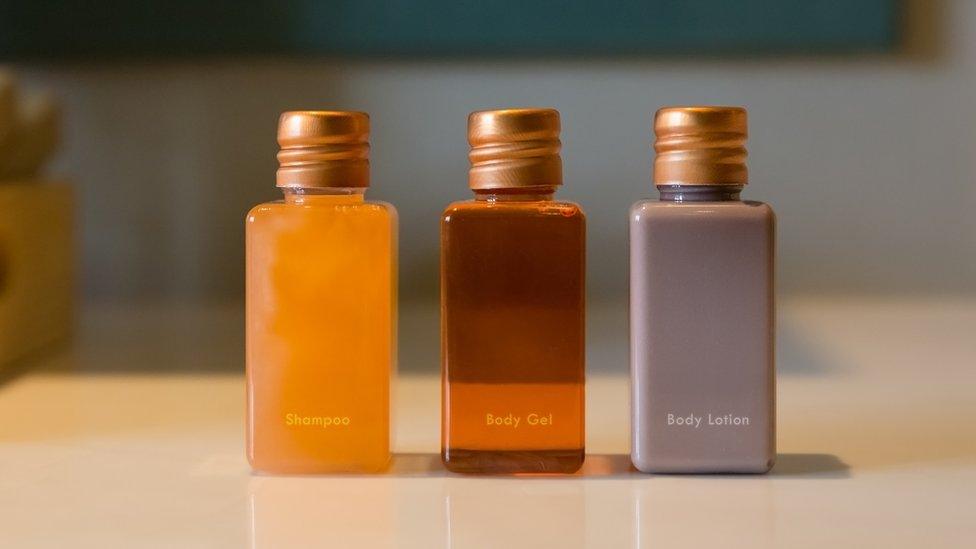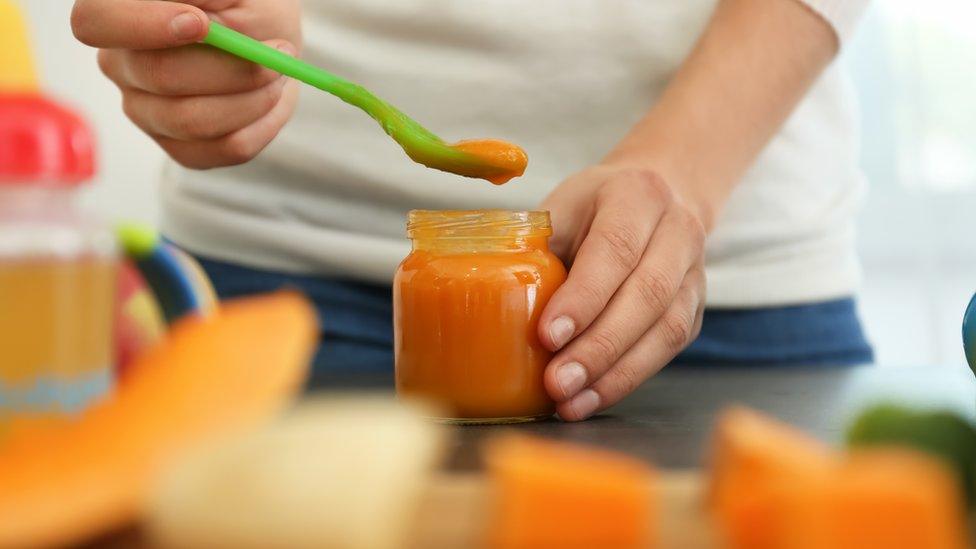Hotel room shampoo bottles could be banned in NI
- Published

Hotel room shampoo bottles could be banned in Northern Ireland but not in the rest of the UK as a result of a change in EU rules.
Northern Ireland's post-Brexit deal, the Windsor Framework, means it continues to follow some EU laws, including rules on packaging.
From 2030 the EU intends to ban some single use plastics including miniature toiletry products provided by hotels.
The Stormont Assembly could ask the government to veto the law change.
The potential impact on Northern Ireland was first reported by the Sunday Telegraph., external
The EU has long planned an update of its packaging rules to encourage reduction, reuse and recycling.
Earlier this month the European Parliament and the Council, which represent EU national leaders, reached a provisional agreement on the revamped rules. , external
The 2030 ban would also apply to individual portions of condiments and milk in cafes and restaurants, but not in takeaways.
The UK has already banned some some single use plastic products, such as cutlery and could ultimately end up with much the same rules as the EU.
A series of updates to EU environmental rules could in theory lead to growing divergence between GB and NI.
However that will depend on whether the UK government decides to voluntarily align with EU rules and whether businesses choose to produce to the EU standard.
Baby food
Brexit gives the UK the right to set its own regulatory standards but, in practice, some companies may just manufacture to a higher EU standard to protect their access to that market.
That phenomenon already exists and is known as "the Brussels effect".
It refers to non-EU companies adopting EU standards throughout their businesses, reflecting the size of the EU market and the relative strictness of its standards.
For example UK baby food manufacturers have already said they will produce in line with updated EU rules.
The Northern Ireland Assembly has two mechanisms by which it can ask the UK government to exempt Northern Ireland from new or updated EU laws.
The better known of these is the 'Stormont Brake', which relates to updated or amended laws.

From 2030 the EU intends to ban some single use plastics including miniature toiletry products provided by hotels
It allows 30 or more MLAs from two or more parties to petition the UK government to block an update to EU law from applying in Northern Ireland.
There is also an "applicability motion" which concerns the application of a completely new EU law.
If the Assembly has not expressed cross-community support for the law, via an applicability motion, the government will normally veto it.
The veto will not be applied if the government assesses that the new law would not create a new regulatory border between GB and Northern Ireland, or if exceptional circumstances apply.
If the government vetoes the law the EU could ultimately take "appropriate remedial measures".
Related topics
- Published13 March 2023
